
The Hadzabe tribe (The Bushmen) Culture Zorilla Safaris And Treks
The Hadza are nomadic hunter-gatherers who live in a savanna-woodland habitat around Lake Eyasi in northern Tanzania (Woodburn, 1968 Woodburn, 1968).They number about 1,000 (Blurton-Jones, O'Connell, Hawkes, Kamuzora, & Smith, 1992), of whom many are still full-time foragers and almost none of whom practice any kind of agriculture.Men collect honey and use bows and arrows to hunt mammals and.

Hadza (Hadzabe, Hadzape) people, Tanzania Stock Image C043/6503 Science Photo Library
Finding food is a daily chore for the Hadza, and there is a division of labor along gender lines. Men hunt wild animals while women gather roots and berries. Both tasks are becoming harder.

The Hadzabe tribe (The Bushmen) Culture Zorilla Safaris And Treks
Here, we present the first comprehensive study of oral health among a living population in transition from the bush to village life, the Hadza hunter-gatherers of Tanzania, to test the hypothesis that the shift from foraging to farming, or agricultural intensification, inevitably leads to increased periodontal disease, caries, and orthodontic di.
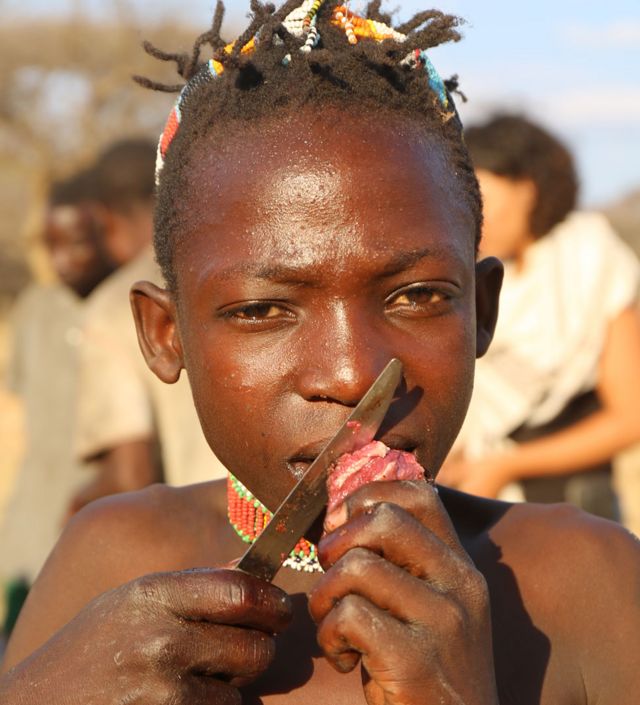
Los secretos que guarda la tribu que ha vivido durante 40.000 años en el lugar donde se originó
The Hadza tribe of Tanzania, also known as Hadzabe, are a native ethnic group found in north-central Tanzania. The Hadza tribe location originally is said to be Lake Eyasi, whereby the leaved in its surrounding areas in the central Rift Valley. They can also be found in the neighboring Serengeti Plateau.
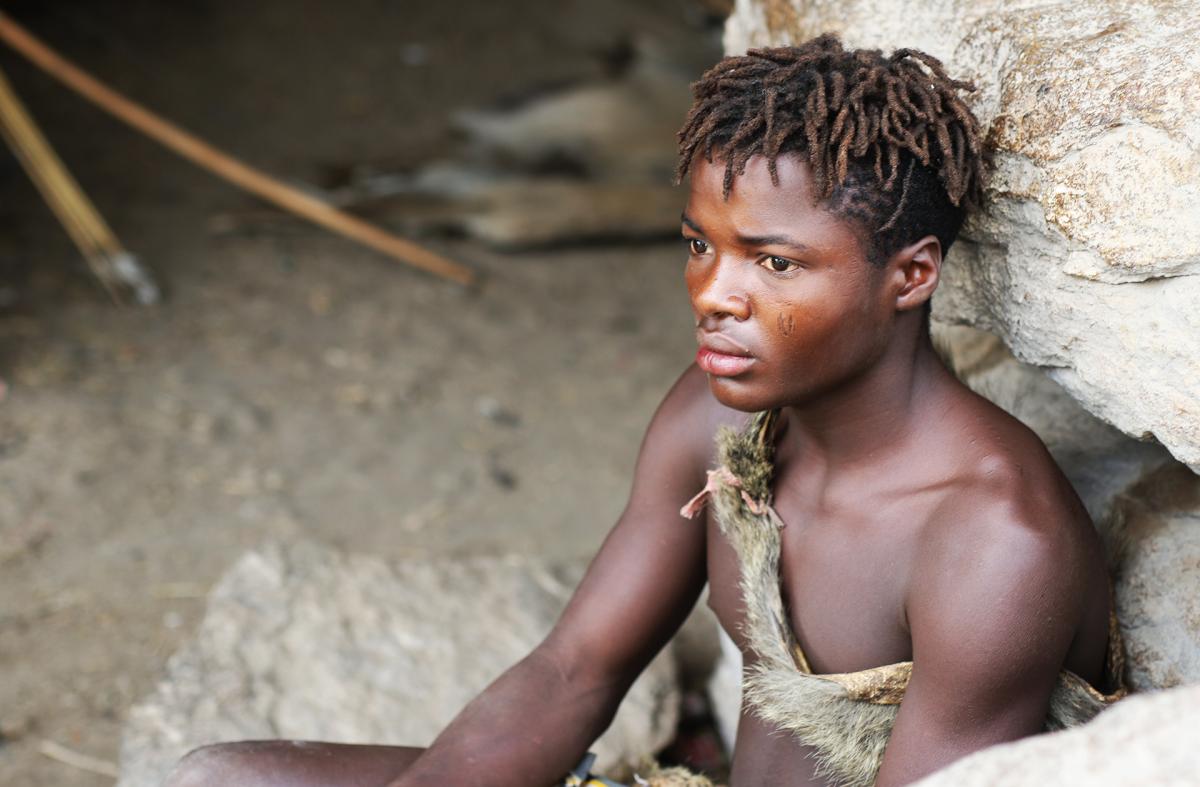
Hadza people Exploring Africa
Here, we present the first comprehensive study of oral health among a living population in transition from the bush to village life, the Hadza hunter-gatherers of Tanzania, to test the hypothesis.
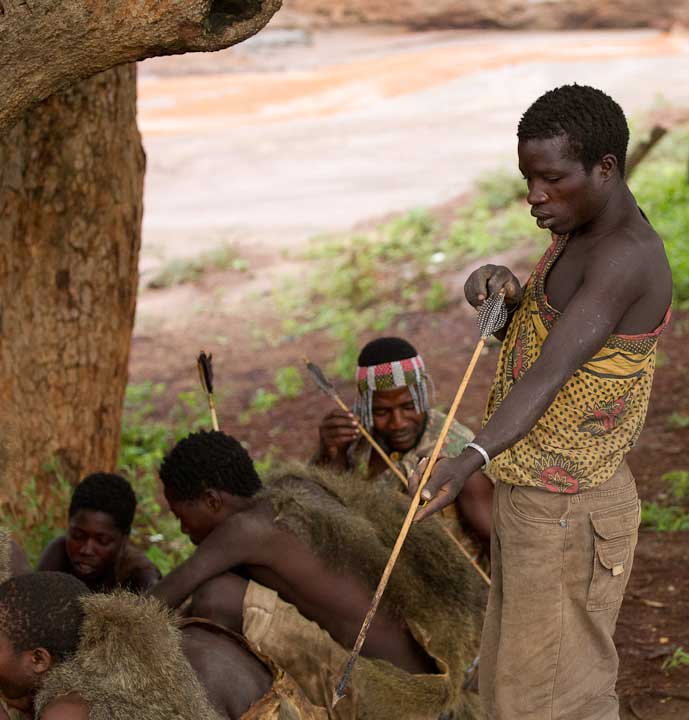
Hadzabe huntergatherers that live off the land like the did 10,000 years ago Long Beach
Understanding how these patterns play out among the Hadza can inform our understanding of how they played out in prehistory." Men living on wild diets in the bush - who eat large amounts of honey and smoke more — had the worst teeth in the study, while women living on wild diets in the bush had the best oral health.

Hadza Tribe Kevin McElvaney Hadza tribe, Tanzania tribes, Tribes women
In October 2011, the Hadza took the innovative step of asserting legal claim to their homeland with a CCRO. They received official title — recognized by the government of Tanzania — to 57,000 acres. In 2012, we secured four more homeland designations and protected 90,000 additional acres for the Datoga tribe. Their designations assert that.
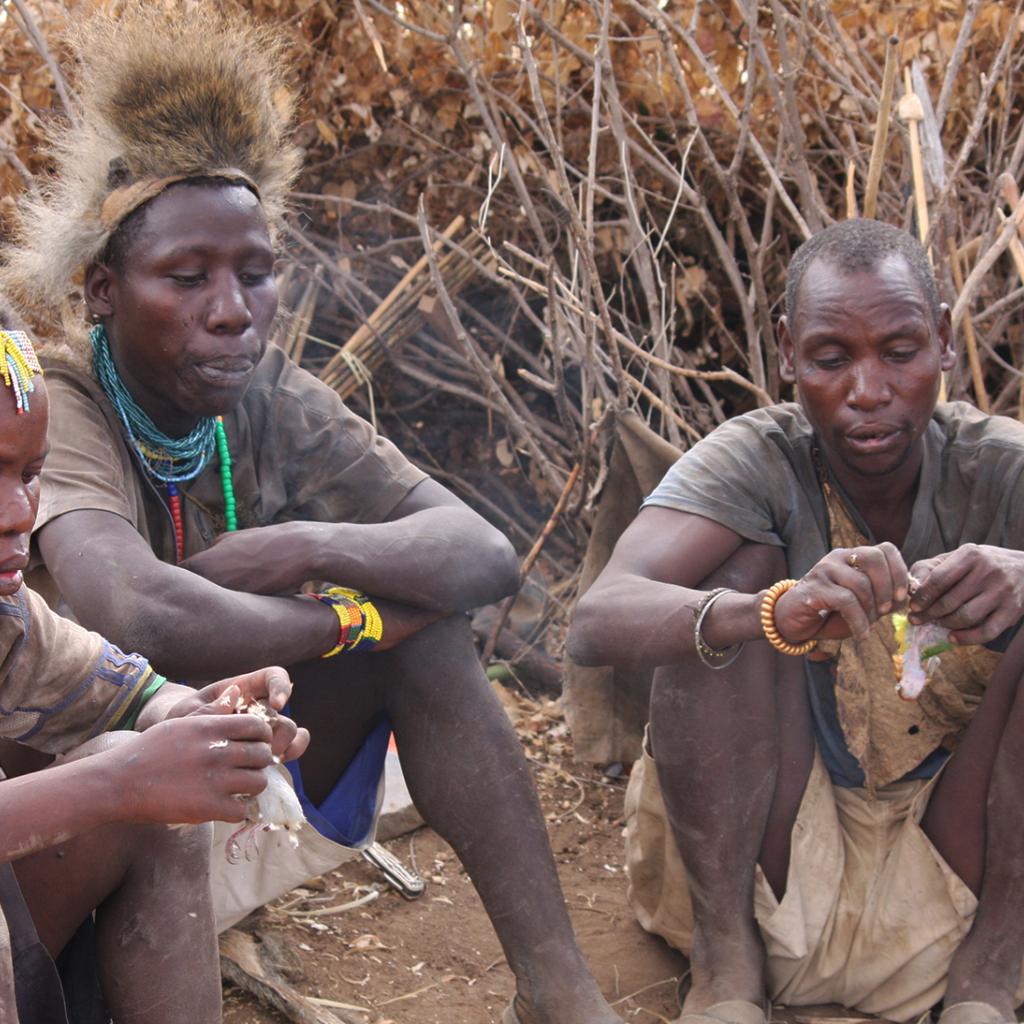
Hadzabe people
By studying the Hadza tribe the research team showed oral health was greatly influenced by gender, residence, and behavior. For instance, men living in the bush suffered greatly from tooth decay and other oral health issues, likely because they use their teeth as tools to make hunting instruments such as arrows and smoke more tobacco - which can lead to cavities.

Overwhelming 48 Hours with Hadzabe Tribe in Tanzania YouTube
The Hadza people are one of the last remaining hunter-gatherer tribes on the planet. Despite being a modern human population, the Hadza lifestyle and diet remain unchanged from their ancestor's thousands of years ago, allowing researchers a unique insight into a palaeolithic microbiome.
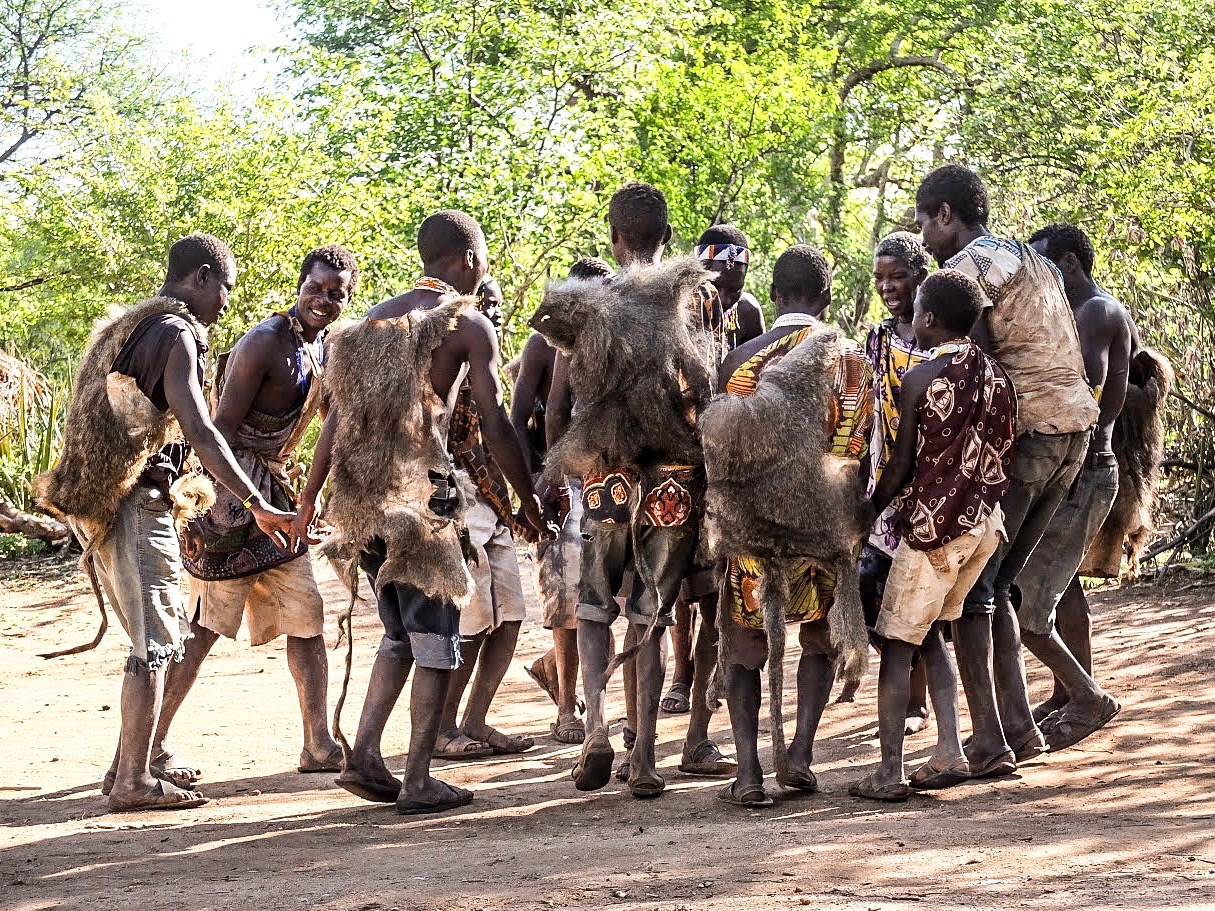
What We Can Learn From the Hadzabe Tanzania Safaris Sababu Safaris
The Hadza, or Hadzabe ( Wahadzabe, in Swahili ), [3] [4] are a protected hunter-gatherer Tanzanian indigenous ethnic group from Baray ward in southwest Karatu District of the Arusha Region. They live around the Lake Eyasi basin in the central Rift Valley and in the neighboring Serengeti Plateau.
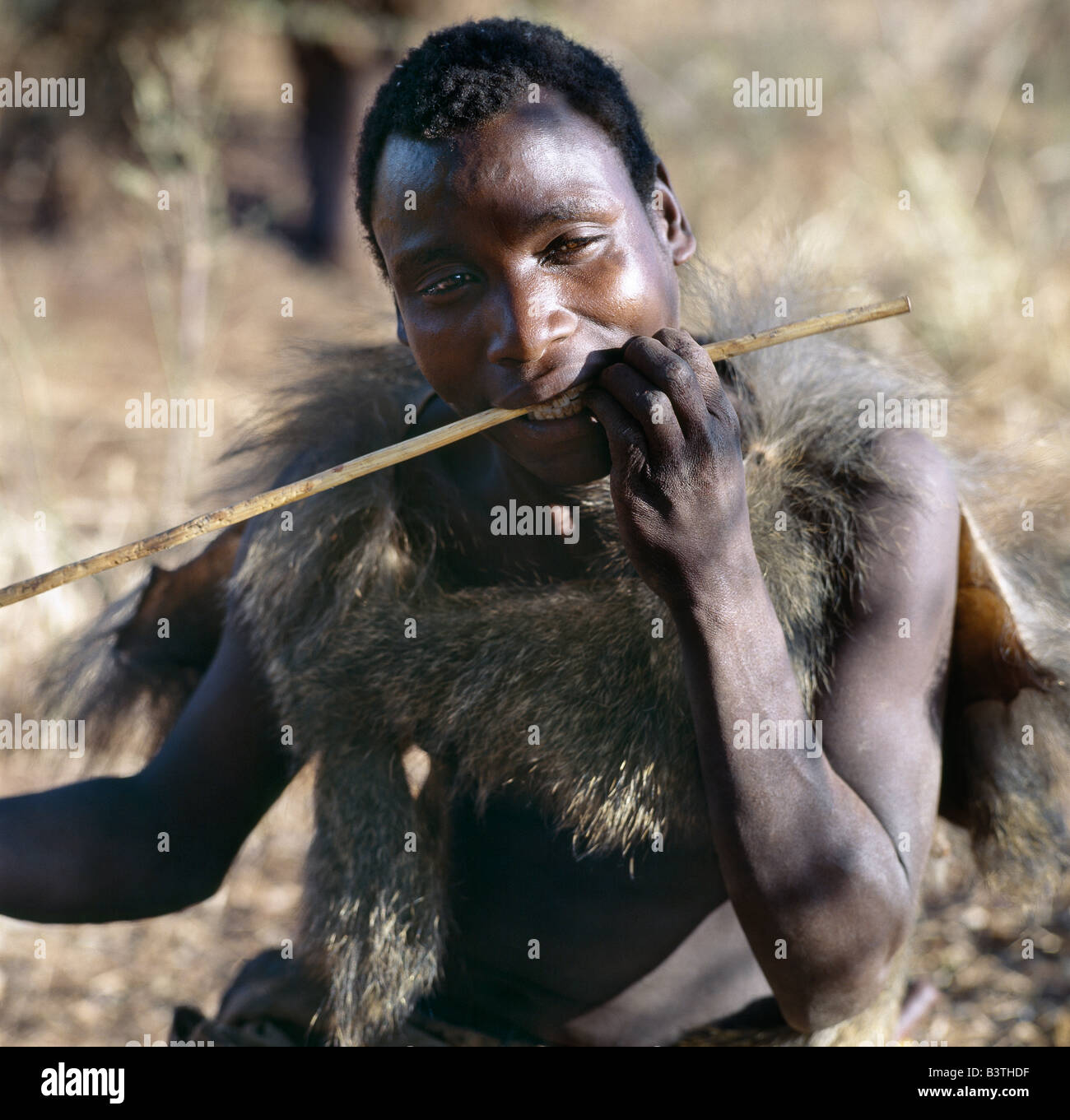
Tanzania, Arusha, Lake Eyasi. A Hadza hunter wearing a baboon skin cape straightens a new arrow
Like the Yanomami tribe from Venezuela, the Hadza are a tribe of hunter-gatherers with a lifestyle from a bygone age. Their diet is made up almost exclusively of food that they forage on the forest and includes fiber rich and highly nutritious berries, bananas and honey while any meat they eat is hunted and caught wild.
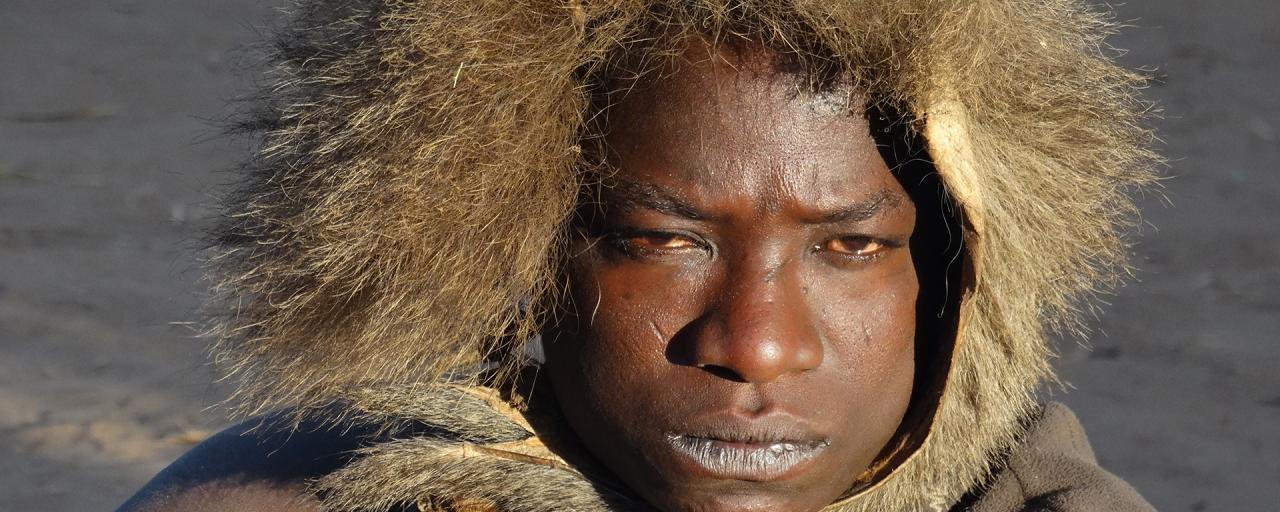
Hadza people Exploring Africa
Like the !Kung tribe in Botswana, the Hadza live a hunter-gatherer life amidst the encroachment of modernized society. "I see the Hadza as a time machine. They're like a time capsule," Saladino says. "They do not suffer chronic disease like we do in Western society, and that alone makes them infinitely fascinating.

Conheça o povo Hadza, “os últimos dos primeiros”, e sua lição à humanidade Etologia e
The findings, published today in the Journal PLoS One, looked at oral health of the current day Hadza tribe in Tanzania, Africa -- some of the last known hunter-gatherers -- as their life style.
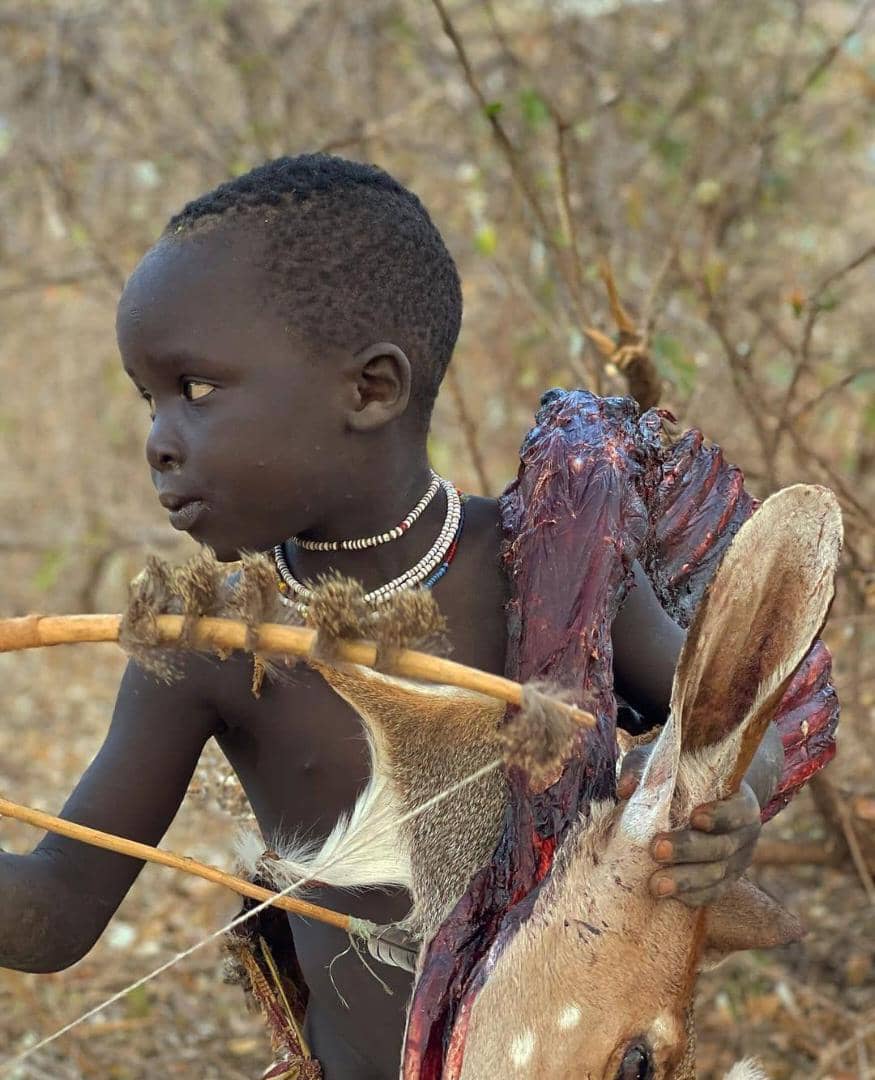
HADZABE DER URSPRÜNGLICHE STAMM Medienbüro Afrika
The study, published Thursday in the journal Science, focuses on a group of hunter-gatherers in Tanzania, called Hadza. Their diet consists almost entirely of food they find in the forest,.
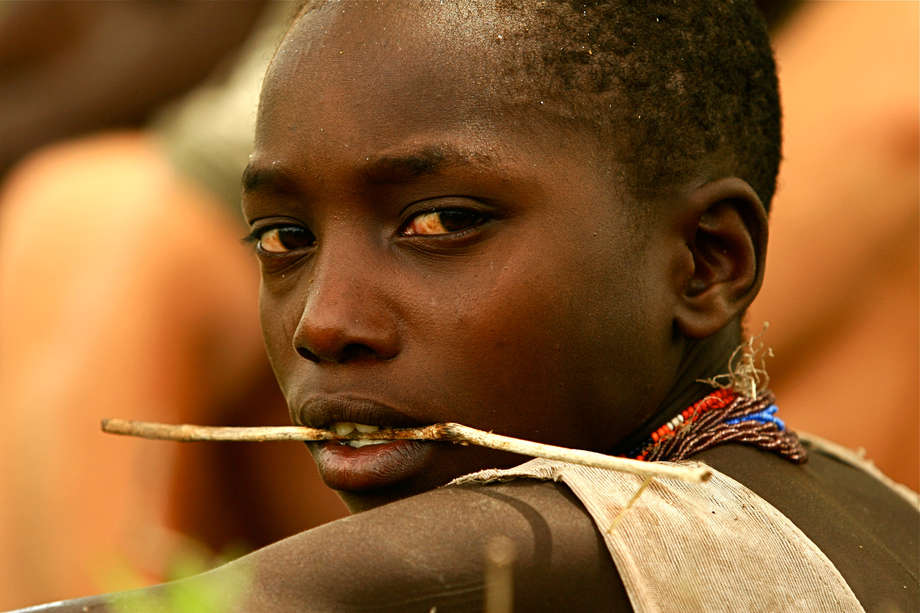
Os Hadza Survival International
When you tune in, you'll discover what the Hadza people typically eat, what their gut microbiome looks like as a result, the problems they're currently facing, and why they choose to remain a hunter-gatherer society despite other local tribes switching courses.

Meet the Hadza people of Tanzania and why they do not worry about shelter or food Face2Face Africa
Magazine The Hadza They grow no food, raise no livestock, and live without rules or calendars. They are living a hunter-gatherer existence that is little changed from 10,000 years ago. What do.